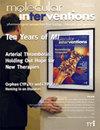Loose Canons: The Global Anglophone Novel and the Failures of Universalism
引用次数: 1
Abstract
This essay examines In the Light of What We Know, by Zia Haider Rahman (2014. In the Light of What We Know. New York: Farrar, Straus and Giroux) and Home Fire, by Kamila Shamsie (2017. Home Fire. New York: Riverhead), two texts portraying the geopolitical state of the globe whose formal experimentations signal the shifting political stakes of the anglophone novel in the second decade of the twenty-first century. At the level of content, Rahman and Shamsie’s novels depict ever-deepening rents in Enlightenment-borne concepts of citizenship, statehood, and universalism, explicitly confronting the expansion and destruction wrought by globalization and its hegemonic predecessor, colonialism. At the same time, they practice a kind of formal violence in their stylistic instability. I argue that the content of these texts depicting the politically imperilled state of the world is powerfully reflected in their narrative fractures. Rahman and Shamsie directly interrogate the types of narratives employed to disseminate universalist, democratic ideals across the world, and do so by inverting these ideals entirely. As they progress (and digress), both novels break apart the narrative template which centres the universal subject of history and thereby produces the global aspiration to “acquire” this sort of subjectivity. Distinguishing these two novels from earlier examples of postcolonial literature are the ways they challenge the baseline ideological and epistemological concepts underpinning the sort of modernity which produces the novel as a form. In the Light of What We Know and Home Fire suggest that representing what a “global anglophone” reality might actually look like in the second decade of the twenty-first century necessitates the portrayal of the decadence and failure of universalism in content and form alike.松散的经典:全球英语小说和普遍主义的失败
本文考察了齐亚·海德尔·拉赫曼(Zia Haider Rahman)于2014年出版的《根据我们所知》。根据我们所知道的。纽约:Farrar, Straus and Giroux)和Home Fire,卡米拉·沙姆西著(2017)。家庭火灾。纽约:河源出版社),这两篇文章描绘了全球的地缘政治状态,它们的正式实验标志着二十一世纪第二个十年中英语小说的政治赌注的转变。在内容层面上,拉赫曼和沙姆西的小说描绘了启蒙时代产生的公民身份、国家地位和普世主义观念中不断加深的裂痕,明确地面对全球化及其霸权前身殖民主义造成的扩张和破坏。同时,他们在文体的不稳定性中也表现出一种形式暴力。我认为,这些描述世界政治危险状态的文本的内容有力地反映在它们的叙事断裂中。拉赫曼和沙姆西直接质疑了在世界范围内传播普遍主义和民主理想的叙事类型,并通过完全颠倒这些理想来实现这一点。随着情节的发展(或偏离主题),两部小说都打破了以普遍历史主题为中心的叙事模板,从而产生了“获得”这种主体性的全球渴望。这两部小说与早期后殖民文学的区别在于它们挑战了基本的意识形态和认识论概念,这些概念支撑着现代性,使小说成为一种形式。《根据我们所知》和《家园之火》表明,要表现21世纪第二个十年“全球英语国家”的现实可能是什么样子,就必须在内容和形式上描绘普遍主义的颓废和失败。
本文章由计算机程序翻译,如有差异,请以英文原文为准。
求助全文
约1分钟内获得全文
求助全文

 求助内容:
求助内容: 应助结果提醒方式:
应助结果提醒方式:


